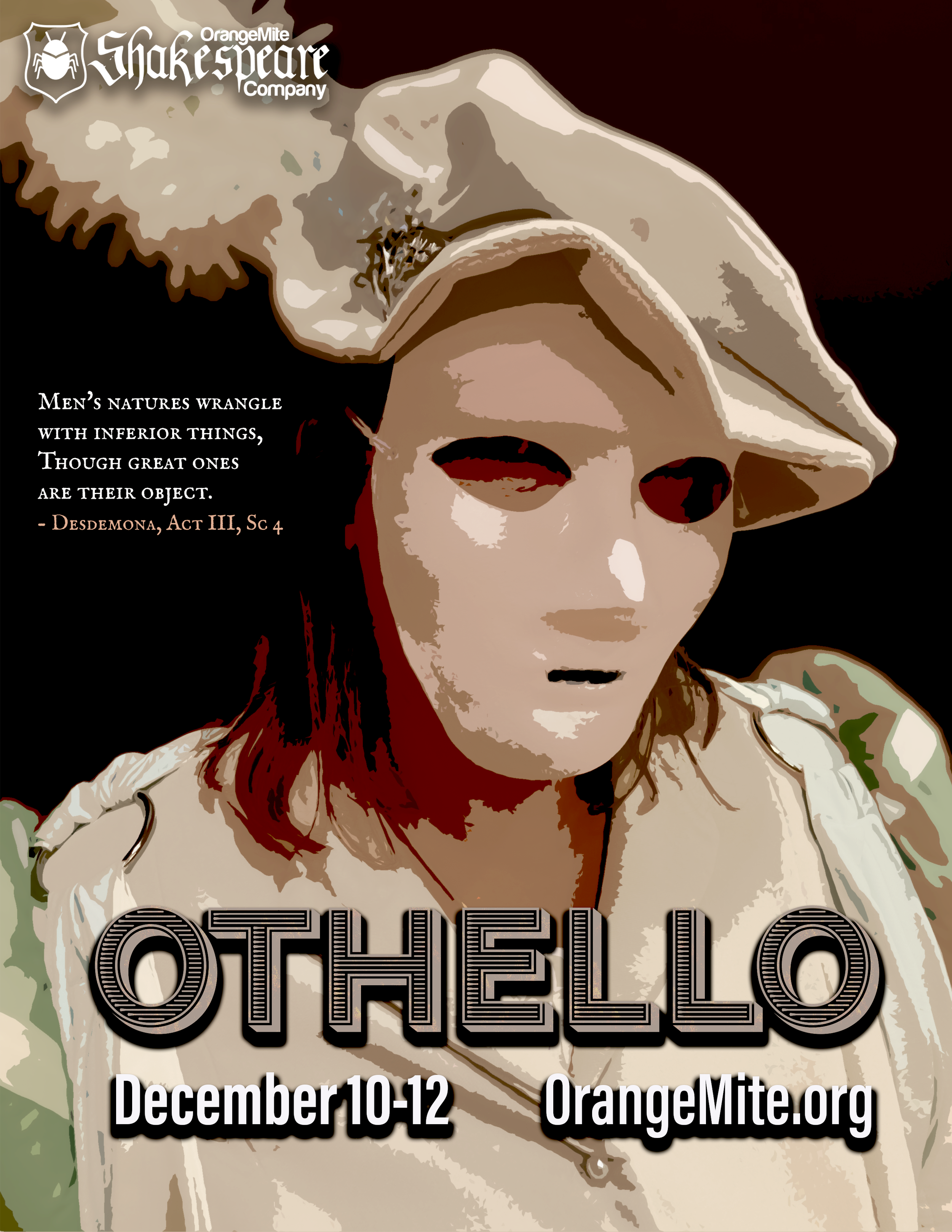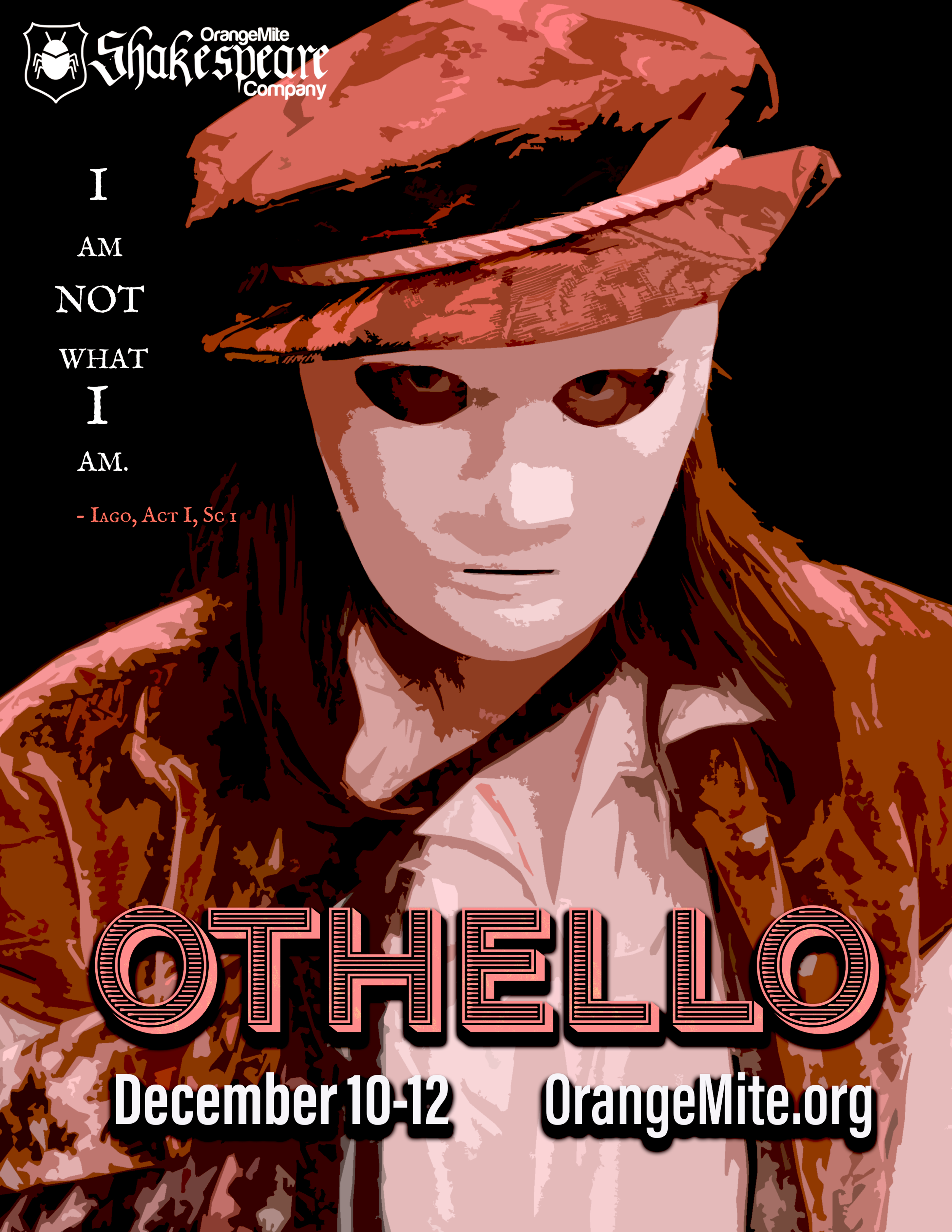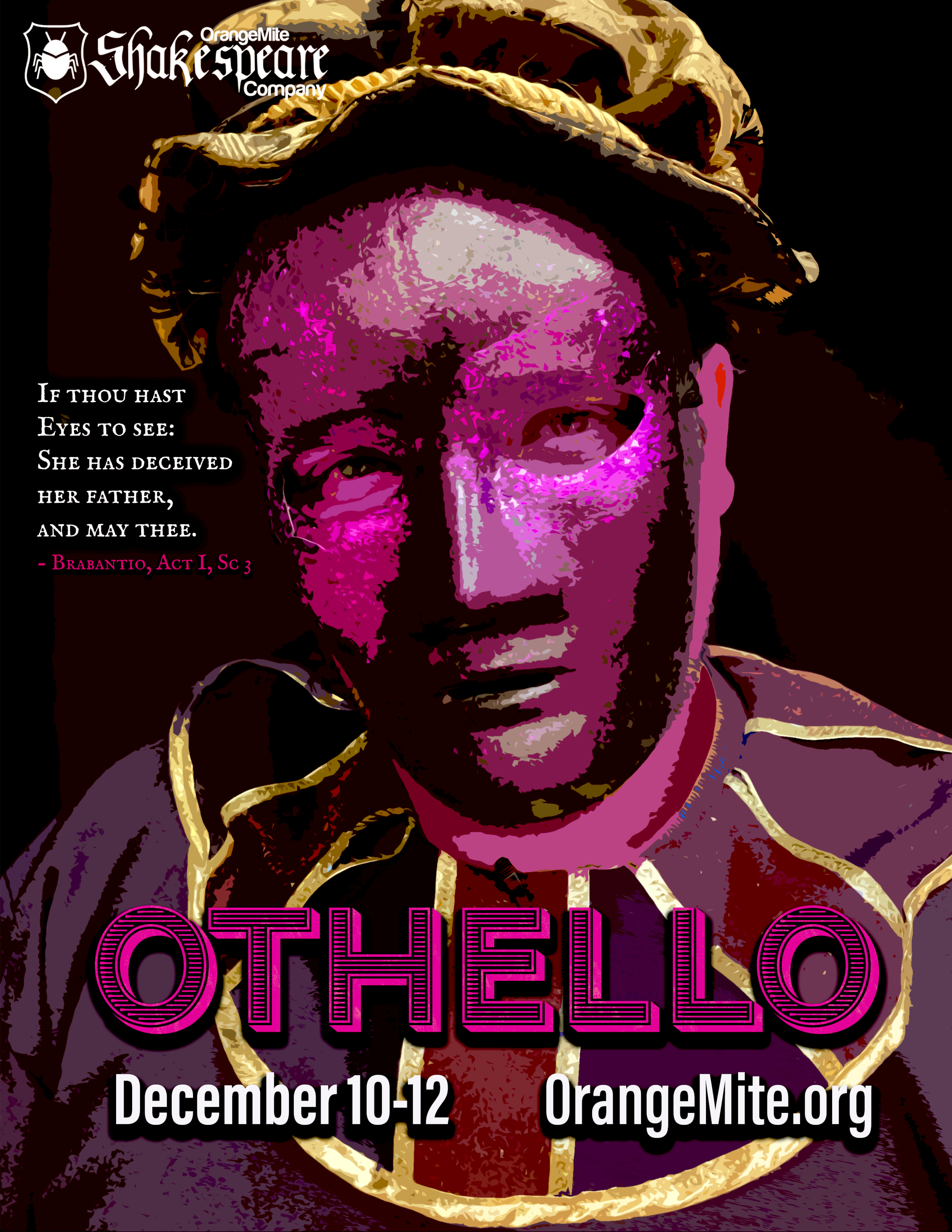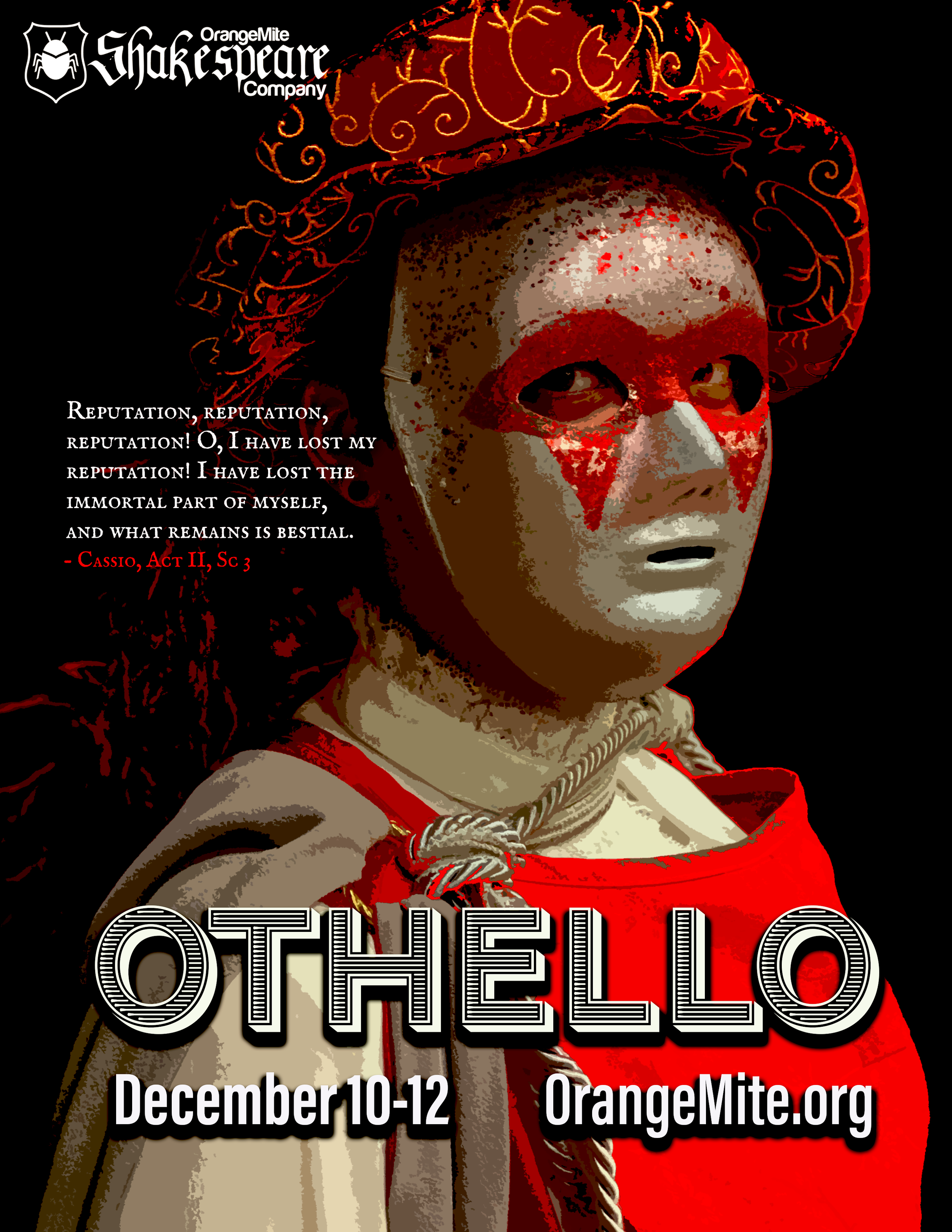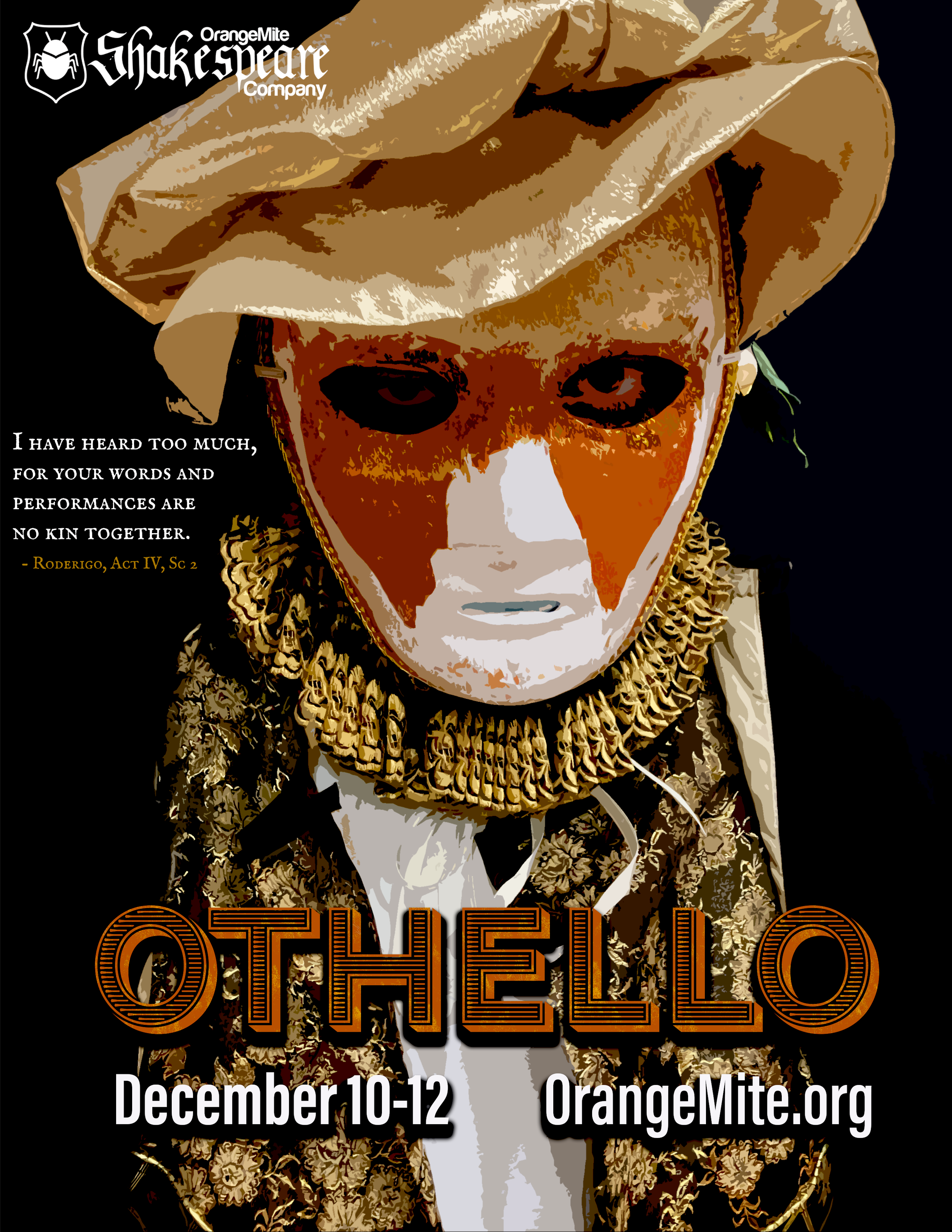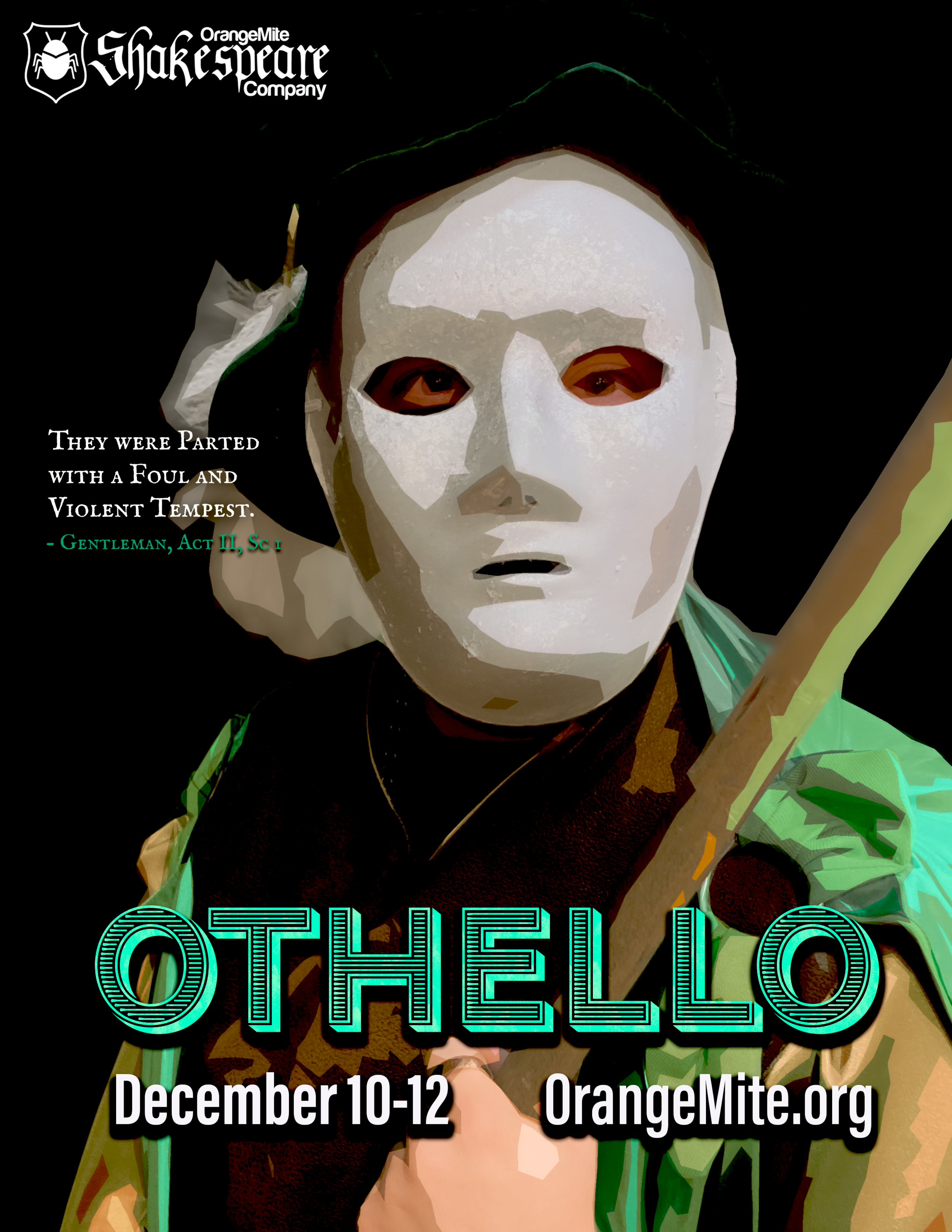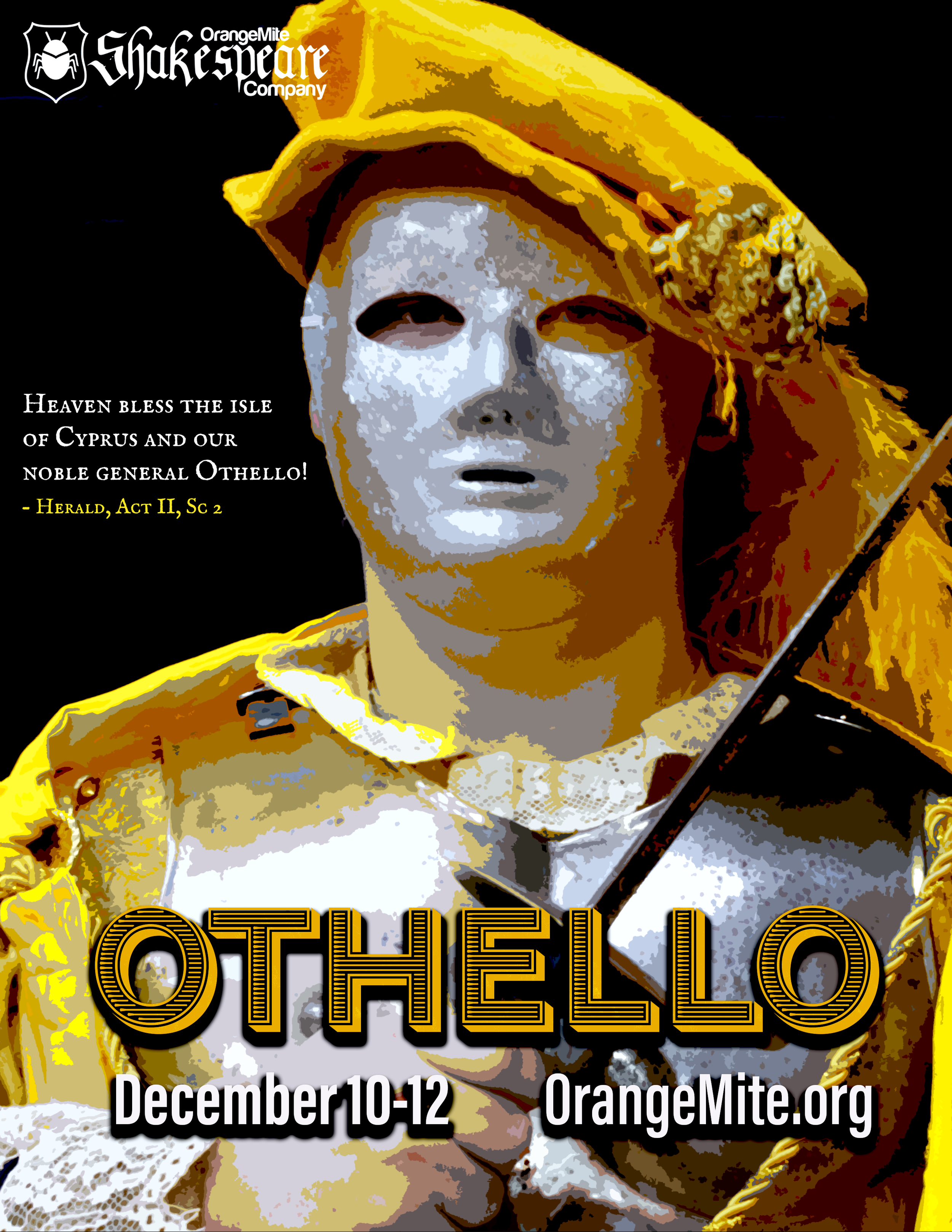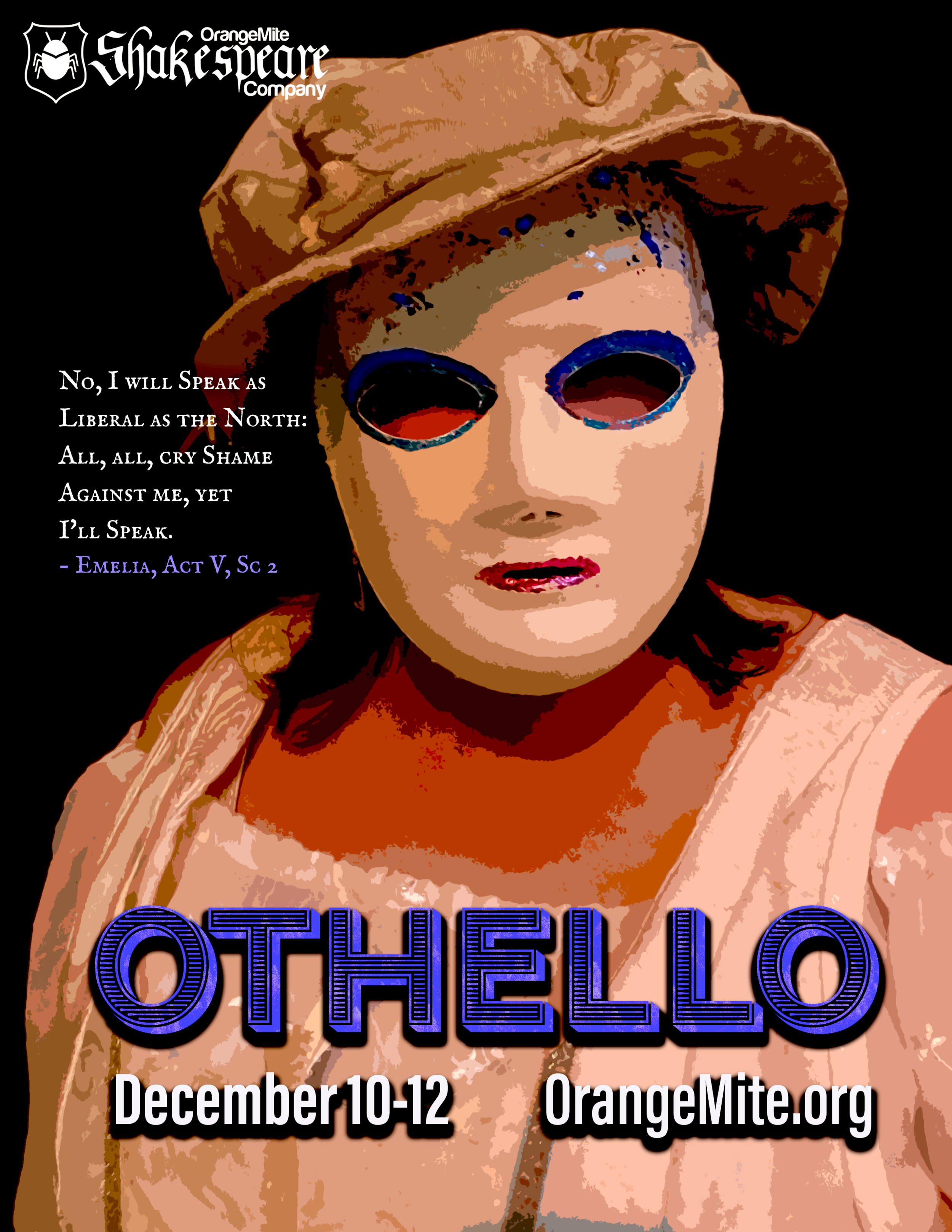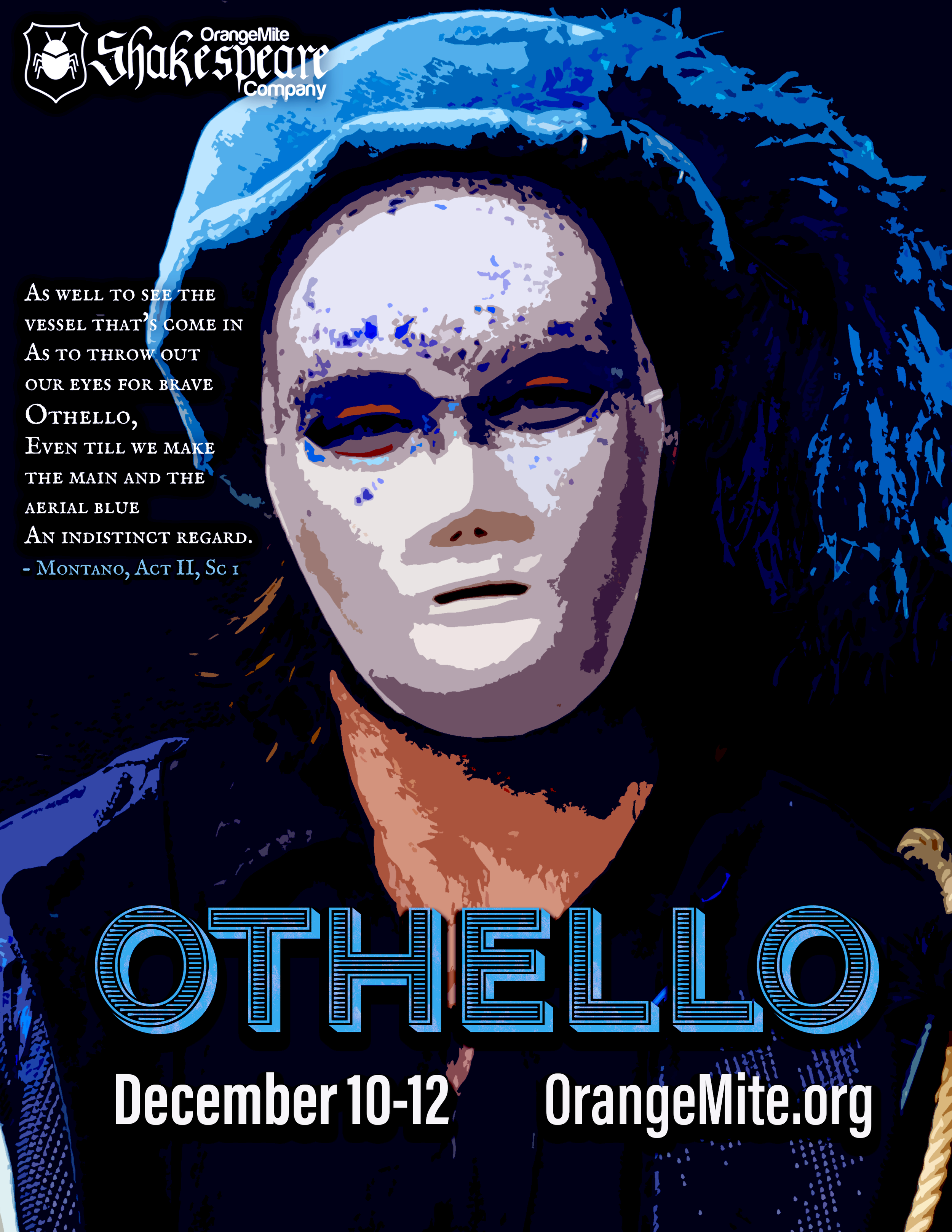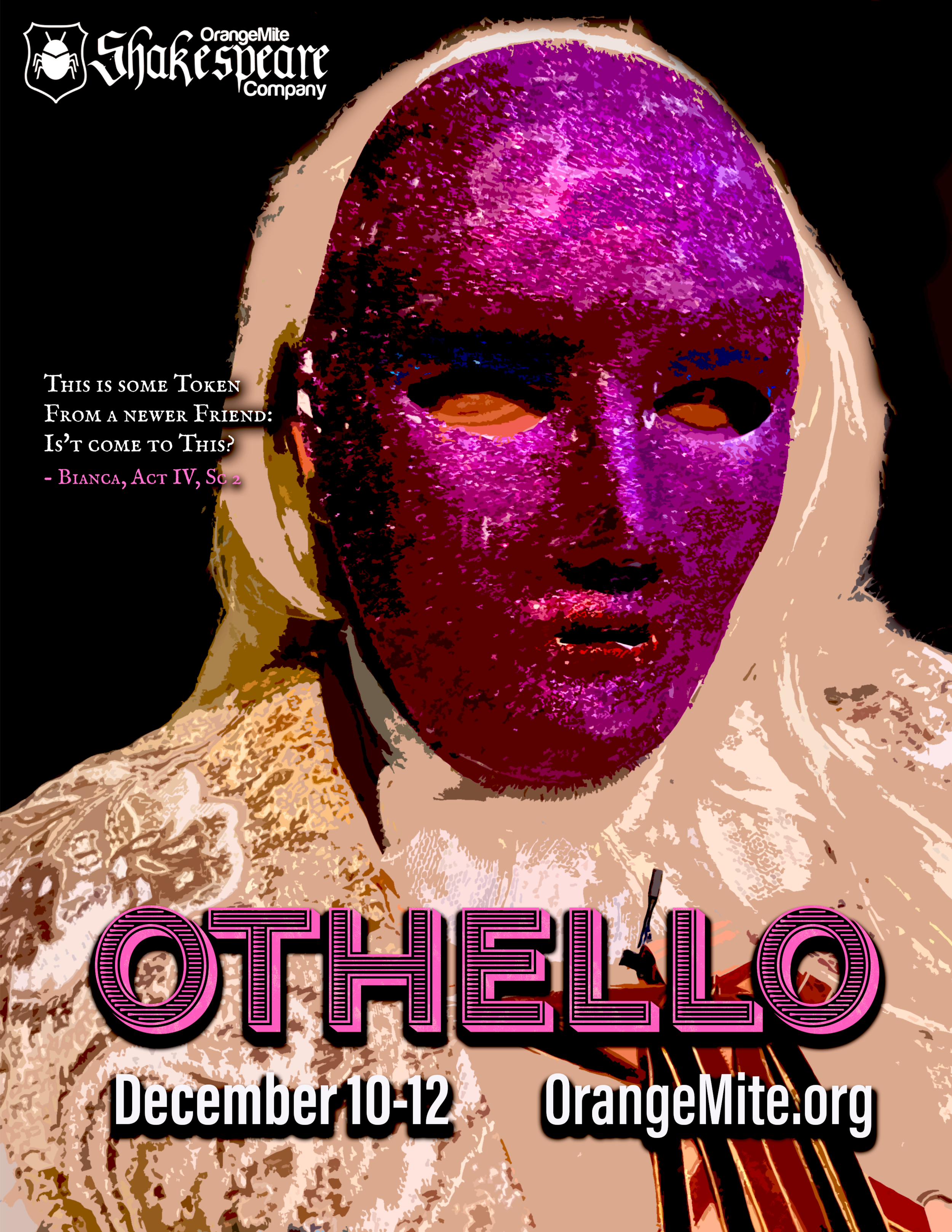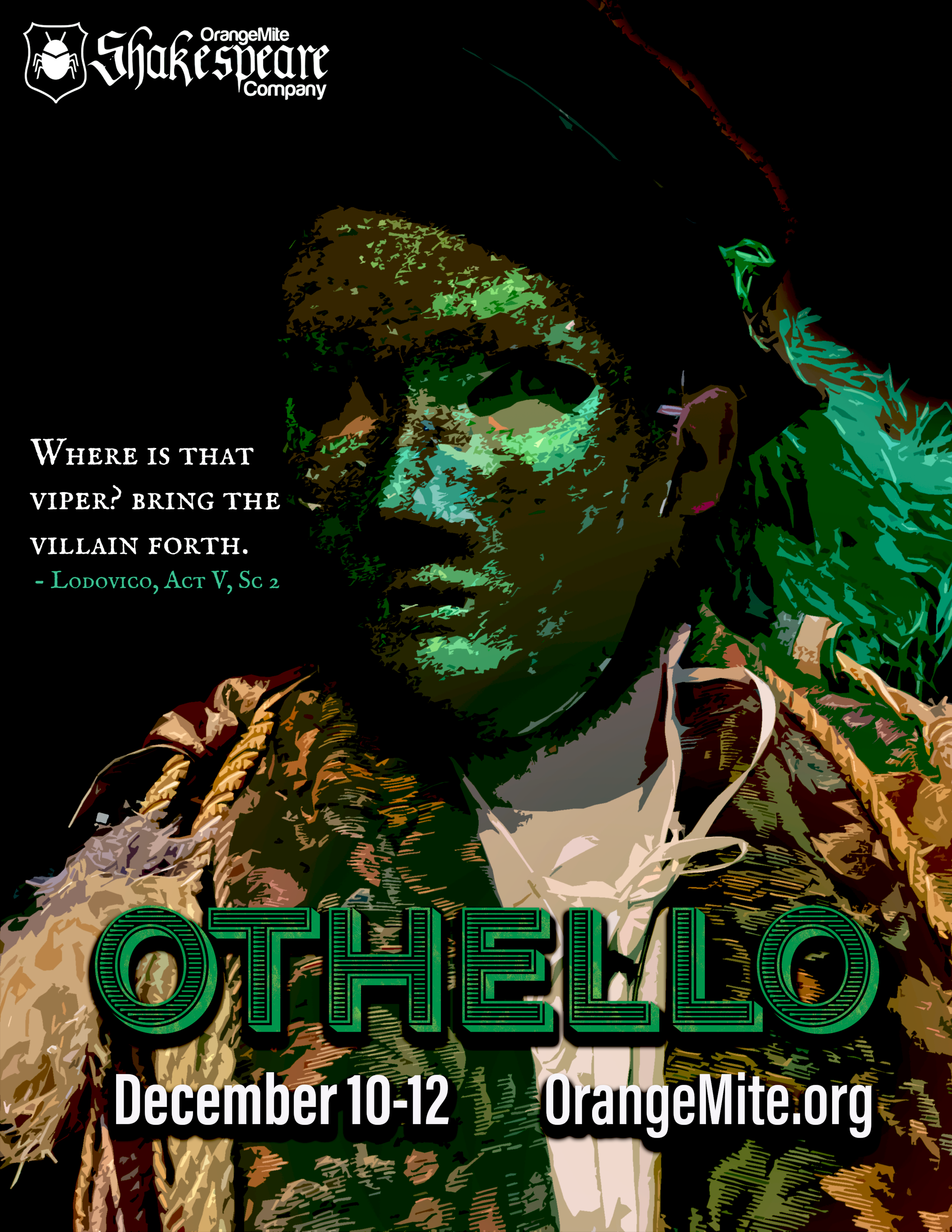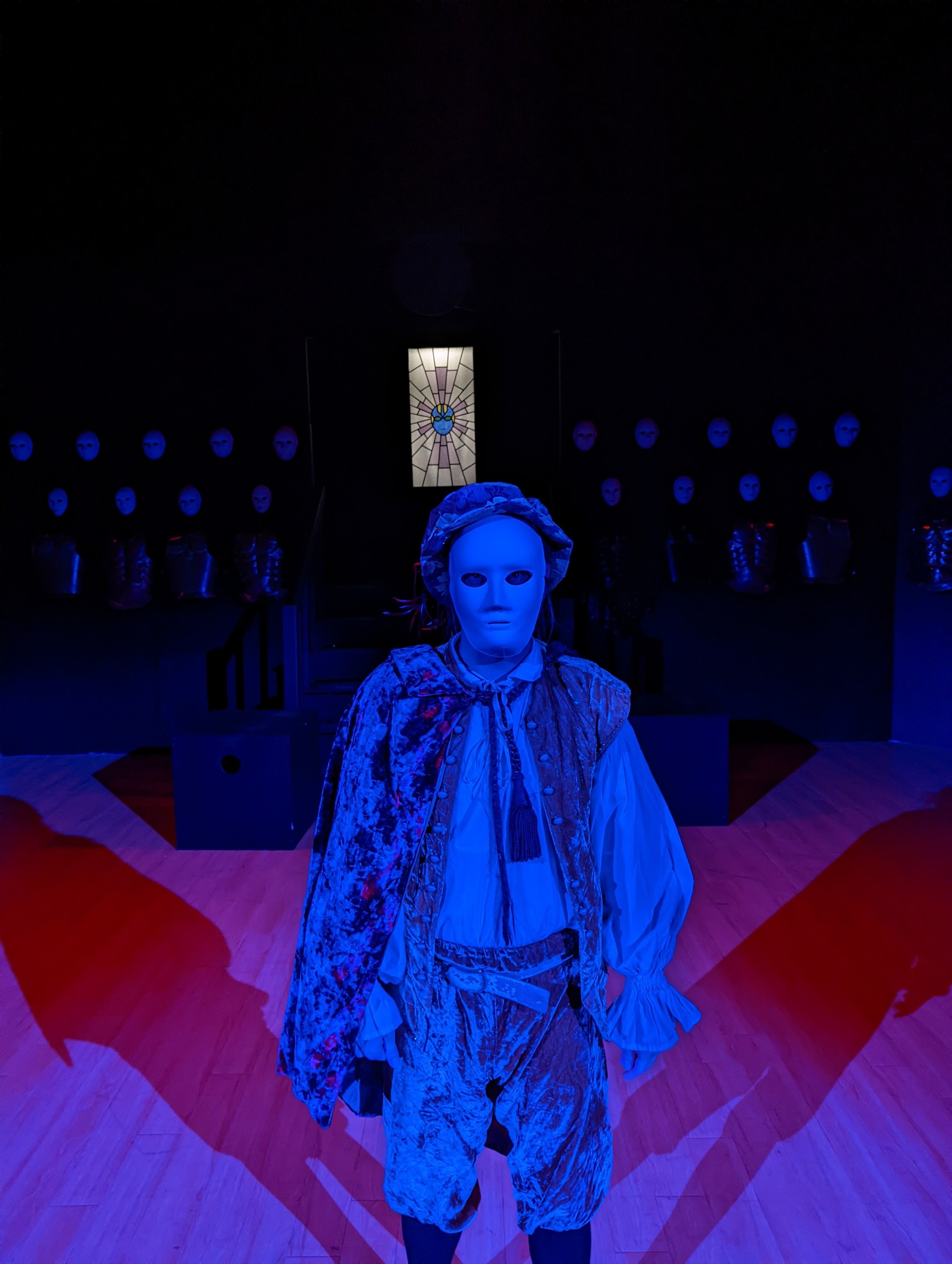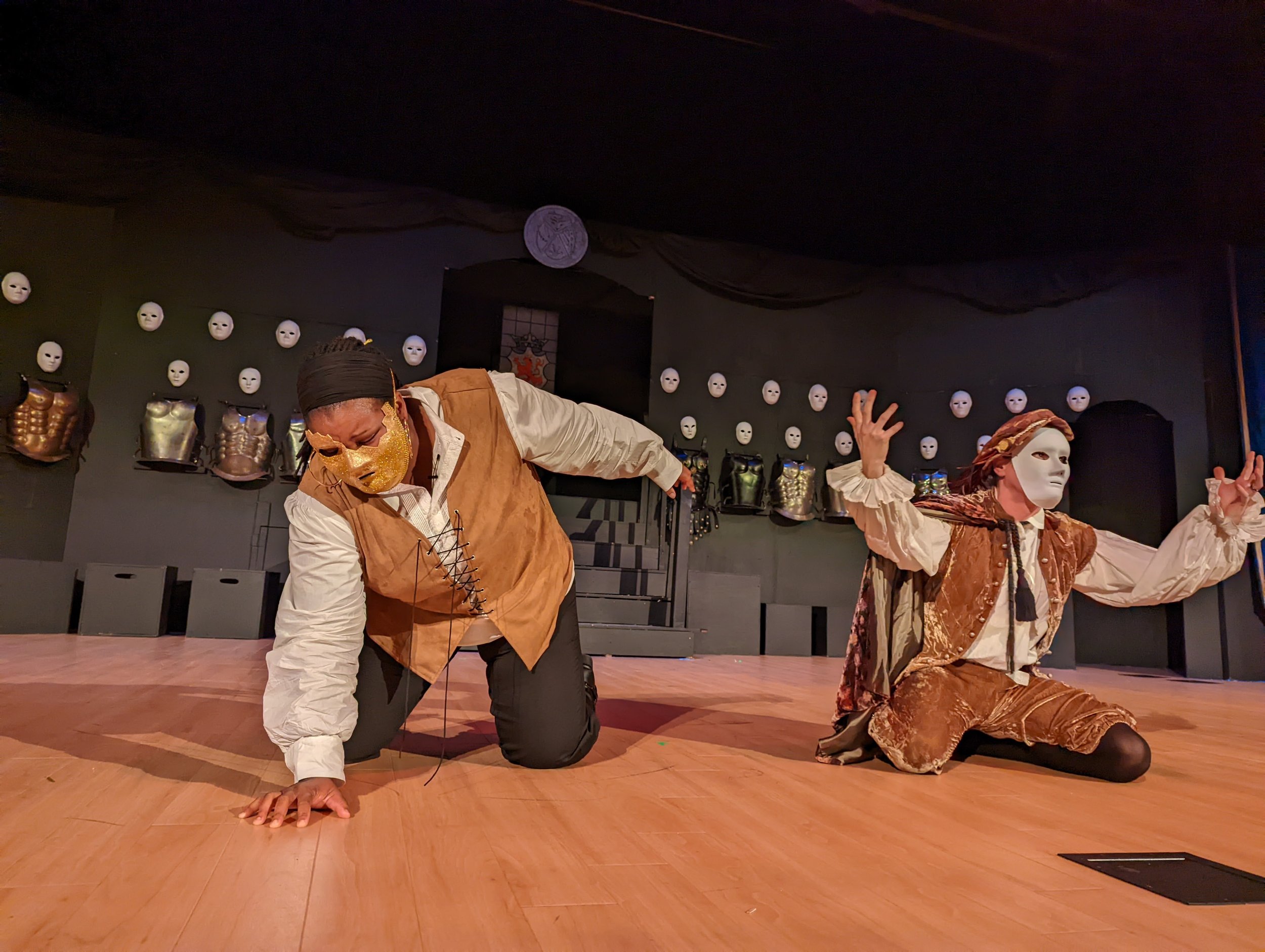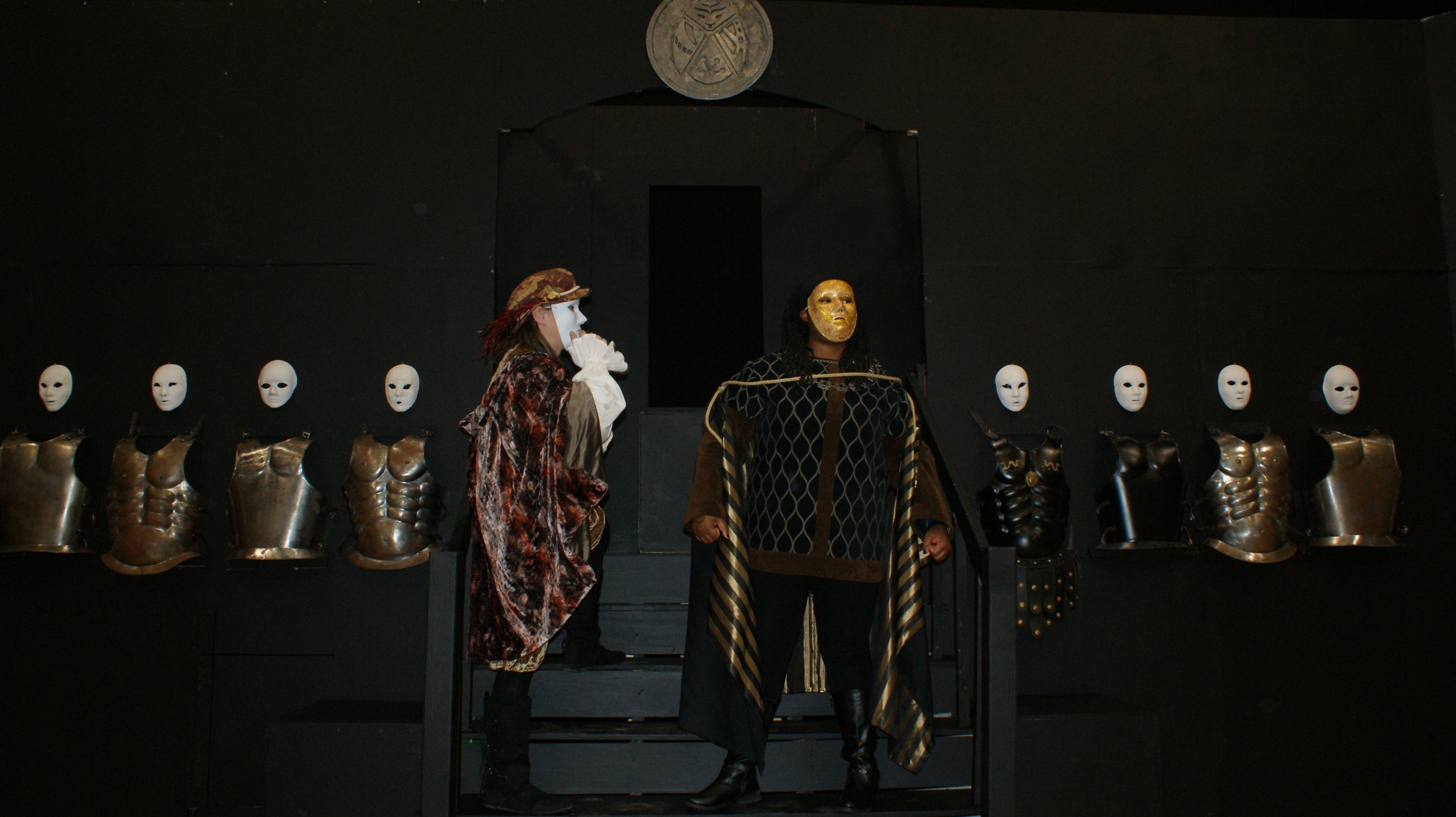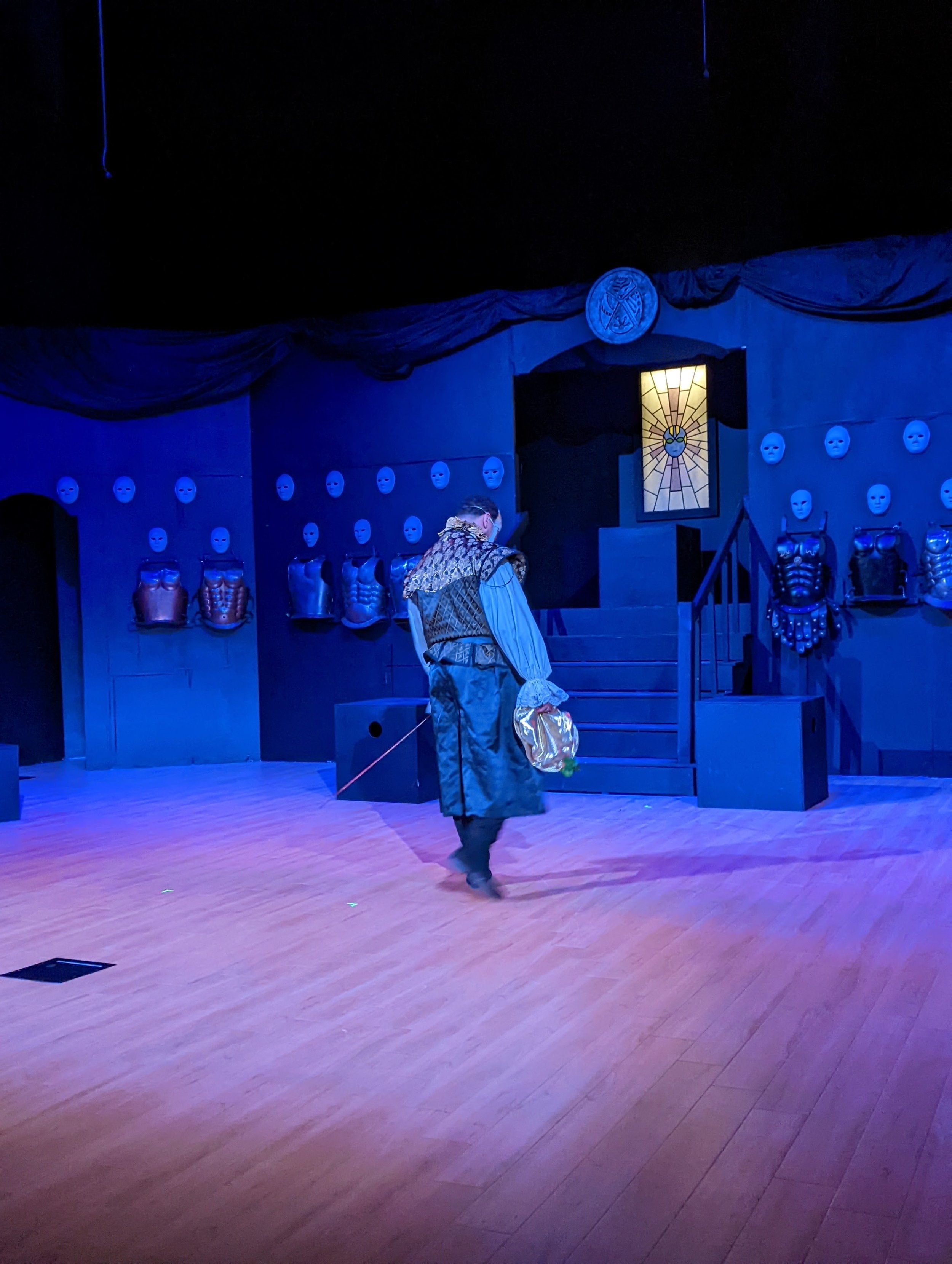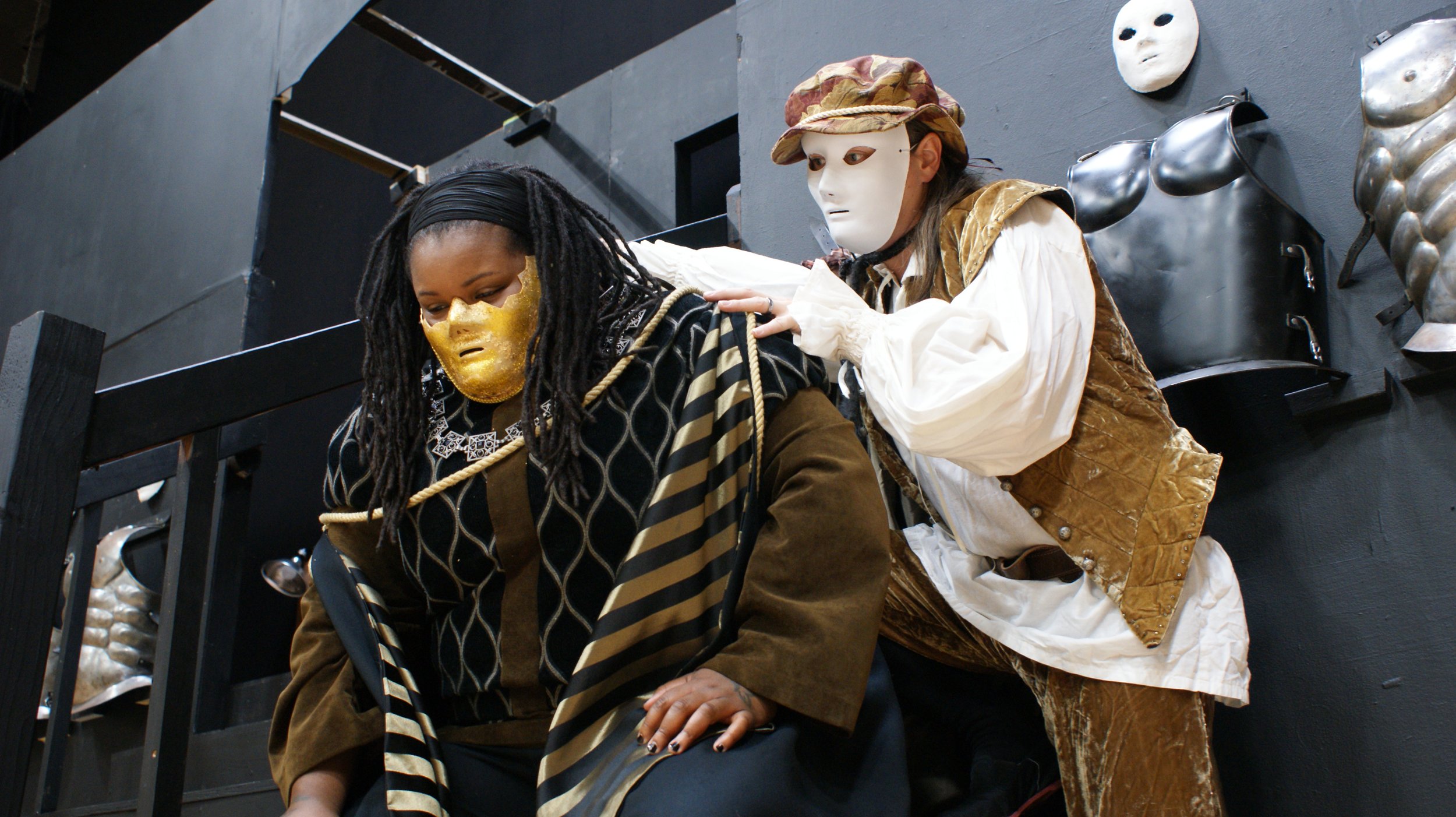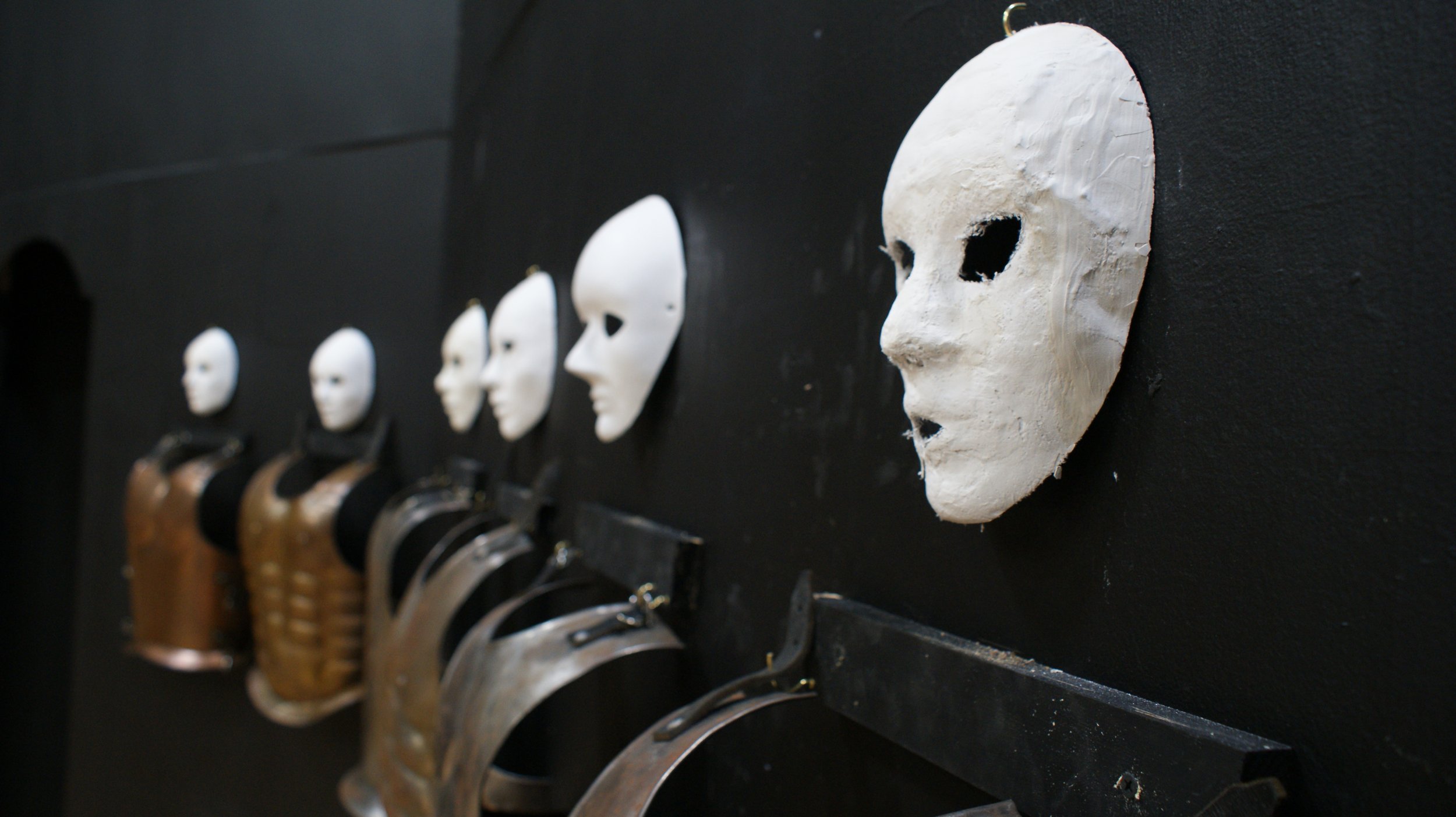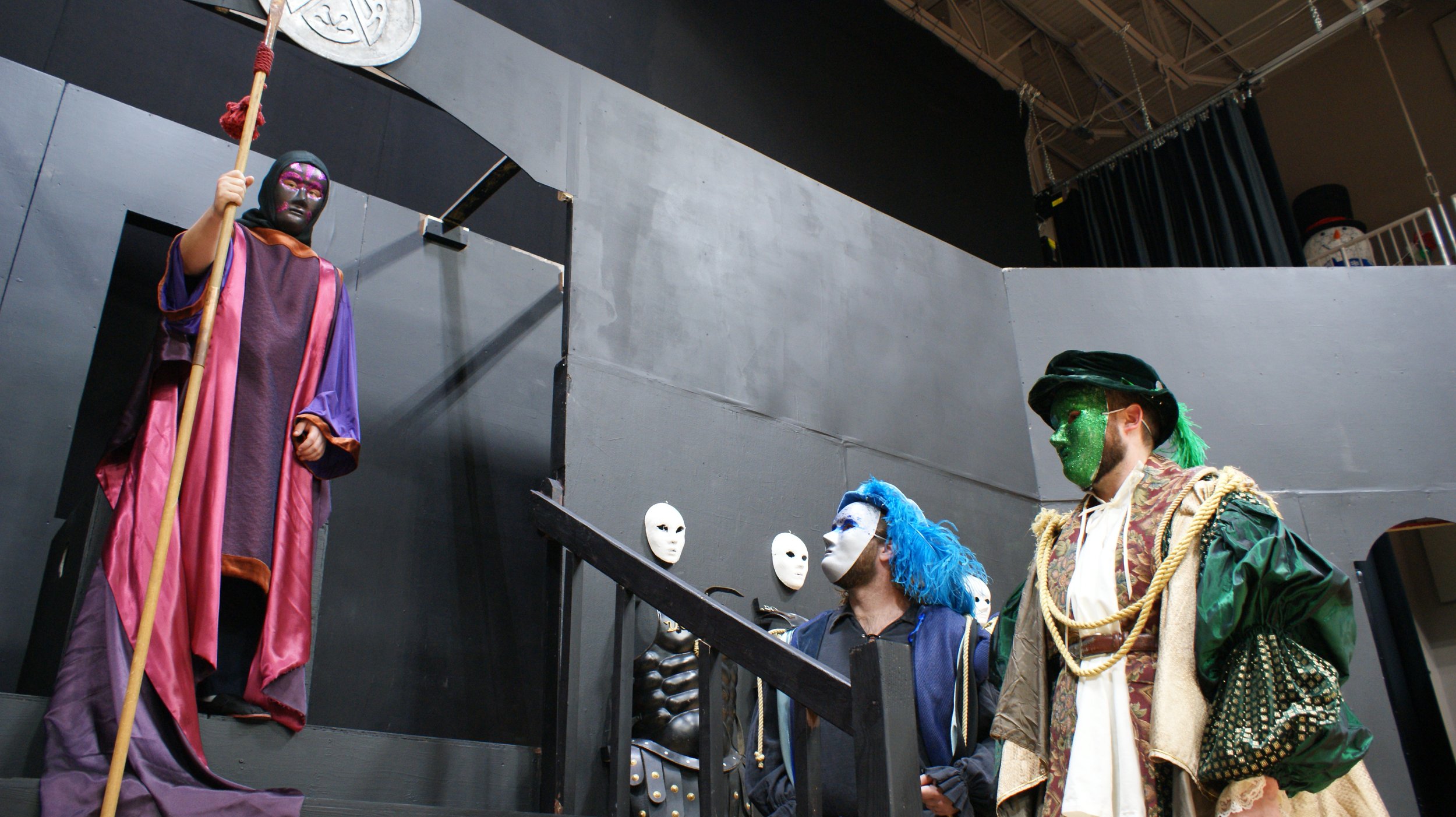Othello
December 2021, Directed by Ángel Nuñez
“Let heaven and men and devils, let them all,
All, all, cry shame against me, yet I’ll speak.”
Othello examines race, gender, and class in a world markedly similar to our own.
In this tragedy, the lowly soldier Iago utilizes language as a weapon to falsify truths and instill lies in those around him. Chaos ensues, ensnaring the General Othello and his faithful wife Desdemona in a deadly and twisted plot.
Director’s Notes
In Othello, Shakespeare examines race, gender, and class in a stratified world similar to our own. For our production, we introduce a society hidden behind masks, ruled by a shadowy and distant governing body that demands compliance with strict codes of behavior. Reputation is everything. As a highly accomplished warrior for the Venetian state, the General Othello has molded himself into this form with great success. He points out that the ‘story of his life,’ was, in part, how Desdemona fell in love with him. He is what he appears to be: noble, valiant, and true. So, he profoundly believes that ‘men should be what they seem.’
Perhaps, Othello initially recognizes this same quality in Cassio, a man of excellent reputation, when he selects him to be his right hand. However, Othello’s lower-ranking officer and trusted advisor, Iago, claims that he was passed over for this promotion. Behind his ‘plain face,’ Iago stews in his suspicions and insecurities, projecting his own inadequacies on those around him. He obsesses over the idea of ‘being a man,’ and advises many characters to simply do this to solve their problems. Meanwhile, Iago’s actions reveal his malignant heart bent on destroying others through any means possible. He employs racism, misogyny, and violence to achieve his end. Iago is the conductor of the various movements in this tragic Shakespearean symphony. Musical motifs throughout Iago’s dialogue demonstrate how he has orchestrated his plans from the start and carried them out as he desires. He underscores the text and sets down ‘the pegs that make this music as ‘honest’ as he is. Likewise, Othello eventually realizes that ‘murder is out of tune.’
The masks help to emphasize the hierarchy of social class and structure, with some being more elaborate than others. As characters lose their standing and fall into Iago’s web, the masks visibly dismantle and begin to break. Othello and those taken advantage of by Iago, like Desdemona and Cassio, repeatedly refer to him as an honest man. Yet, shrouded by these masks, how can anyone know who is honest? How are we to know today? How do we distinguish truth from lies and the benevolent from the malignant?
I especially enjoyed developing the concept behind this unique take on Othello. The creative vision is influenced by the elaborate masks used during an annual festival in Italy, the Carnival of Venice. As Othello is set in Venice, inspiration was taken from the carnival’s most significant feature and incorporated into this production in a way that developed this story and vision. I could not be more thrilled to have the opportunity to direct this production and share it with all of you. Thank you to the wonderful cast and crew for their amazing work all around. It has been my pleasure working with all of you, and I hope to do it all over again soon.
— Ángel Nuñez



